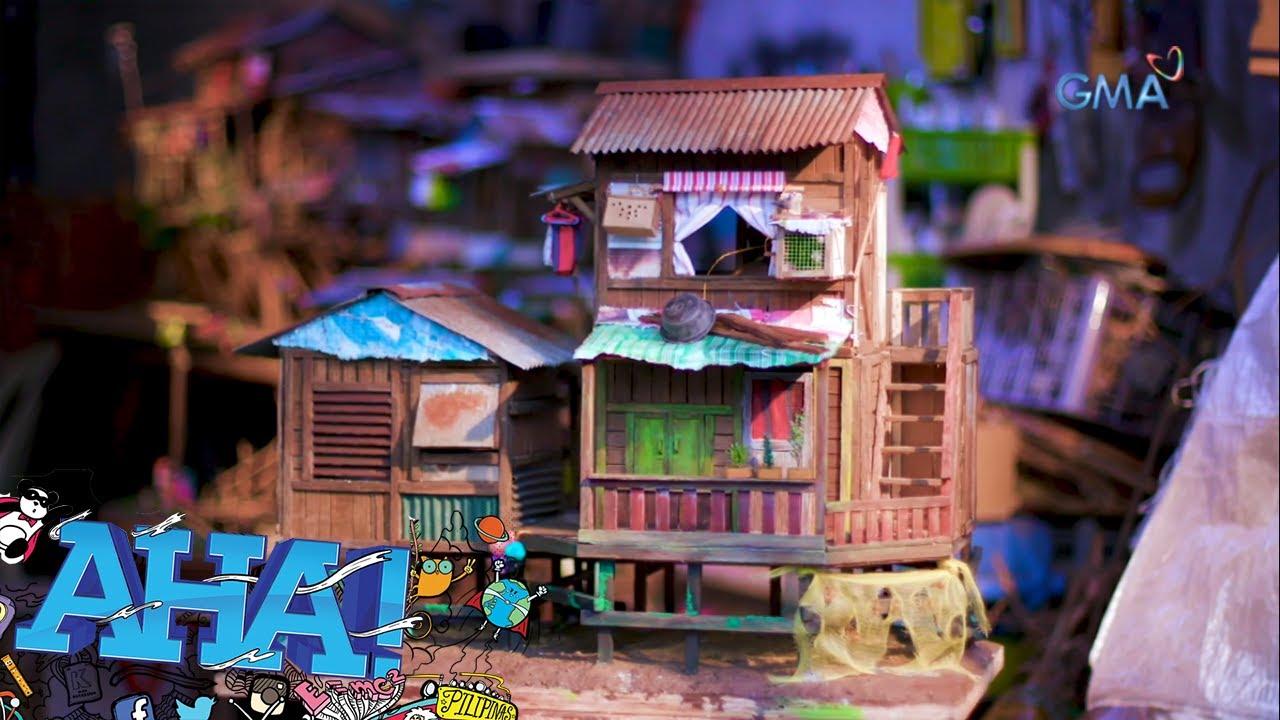Excellence in Art with Elmer Borlongan | ExceLens
Summary
TLDRElmer Berlongan, a full-time visual artist from Mandaluyong now based in San Antonio, Zambales, shares his journey from early childhood drawing exercises to his evolution as an artist. Inspired by simple materials and artists like Fernando Sena, Berlongan's work explores themes of identity, self-expression, and history. Notable for his figurative expressionism, he emphasizes exaggerated human proportions and bald faces to highlight emotion and the human experience. His art, deeply rooted in daily life, history, and literature, aims to inspire hope and resonate with Filipinos from all walks of life.
Takeaways
- 😀 Elmer Berlongan is a full-time visual artist from Mandaluyong, now based in San Antonio, Zambales.
- 😀 He started drawing at a young age, with his father assigning him exercises to draw objects from different angles using pencil.
- 😀 At age 11, his aunt introduced him to the works of Fernando Sena, which greatly influenced his artistic development.
- 😀 Berlongan initially believed that realistic drawing made one an artist, but this perspective changed when he enrolled at the University of the Philippines College of Fine Arts.
- 😀 He learned that art is not just about representation but a form of self-expression and a record of history and identity.
- 😀 In 1988, he won second prize in the oil painting category for *Regimen*, a politically charged artwork commenting on abusive leadership.
- 😀 In 1992, his second prize-winning painting *Tampuhan* explored family tensions, marking a turning point in his artistic style.
- 😀 Berlongan began experimenting with figurative expressionism, exaggerating human proportions and focusing on facial expressions rather than realistic details like hair.
- 😀 His art is influenced by history, literature, and daily life, often containing autobiographical elements.
- 😀 He aims for his art to inspire hope, offer insight into daily existence, and become part of the collective memory of the Filipino people.
Q & A
What influenced Elmer Berlongan's initial interest in art?
-Elmer Berlongan's initial interest in art was influenced by his father, who gave him drawing exercises at the age of 10. He would pick objects from around the house and draw them from different angles using pencils.
How did Berlongan’s aunt contribute to his artistic development?
-At the age of 11, Berlongan's aunt, who was the youngest sister of his father, introduced him to the work of Fernando Sena, which sparked his fascination with how simple art materials could create beautiful artwork like flowers, still lifes, landscapes, and portraits.
What was Berlongan's initial understanding of what it meant to be an artist?
-Initially, Berlongan believed that if you could draw an object realistically, either from life or memory, you were considered an artist. However, this perspective changed after enrolling at the University of the Philippines College of Fine Arts.
How did Berlongan's education at the University of the Philippines influence his view on art?
-At the University of the Philippines College of Fine Arts, Berlongan's view on art evolved. He learned that art is not just about self-expression, but also a way to document history, identity, and a nation's development, as well as a reflection of personal experiences.
What was the significance of Berlongan's award-winning painting 'Regimen'?
-Berlongan's painting 'Regimen,' which won second prize in 1988, was politically charged. It commented on the abuse of power by leaders towards their people, reflecting Berlongan's active involvement in the social realist group 'Abay' at the time.
What themes did Berlongan explore in his 1992 painting 'Tampuhan'?
-In his 1992 painting 'Tampuhan,' Berlongan explored the tensions that arise during family reunions, using distorted proportions of the human figure to express these emotional dynamics. This piece marked a turning point in his art, pushing him towards a more expressive and figurative style.
What artistic style did Berlongan experiment with during his career?
-Berlongan experimented with figurative expressionism, where he exaggerated the proportions of human figures and distorted limbs. He used these techniques to create expressive, non-realistic representations of the human form.
Why did Berlongan choose to paint his subjects without hair?
-Berlongan decided to paint his subjects bald to focus more on the expression of the face and eyes, rather than the personality often defined by hair. This decision was also influenced by his admiration for the works of Olive Oil Meadow, who painted bald faces with exaggerated proportions.
What is Berlongan's approach to the painting process?
-Berlongan follows a traditional approach to painting, conducting thorough studies before beginning to paint on canvas. He focuses on precision in his brushstrokes and works diligently to avoid mistakes by completing these preparatory studies.
What are some of the sources of inspiration for Berlongan’s artwork?
-Berlongan draws inspiration from everyday life, the streets, history, and literature. Some of his works are autobiographical, while others reflect broader cultural and societal themes.
What does Berlongan hope to convey through his art?
-Through his art, Berlongan aims to inspire hope and encourage viewers to reflect on the seriousness of daily existence. He hopes his work will resonate with people from all walks of life and contribute to the collective memory of the Filipino people.
Outlines

This section is available to paid users only. Please upgrade to access this part.
Upgrade NowMindmap

This section is available to paid users only. Please upgrade to access this part.
Upgrade NowKeywords

This section is available to paid users only. Please upgrade to access this part.
Upgrade NowHighlights

This section is available to paid users only. Please upgrade to access this part.
Upgrade NowTranscripts

This section is available to paid users only. Please upgrade to access this part.
Upgrade NowBrowse More Related Video

Profiles: Elmer Borlongan

Excellence in Design with Leeroy New | ExceLens

Dokumenter Biografi Ricky Subekhi Al-Akbar Pembuat Karya Seni 2 Dimensi dari Desa Temu Ireng

Interview with Tessar Lo, an Indonesian-Canadian modern-day artist

Is there a future for a Filipino VFX artist?

Paggawa ng diorama, alamin! | AHA!
5.0 / 5 (0 votes)